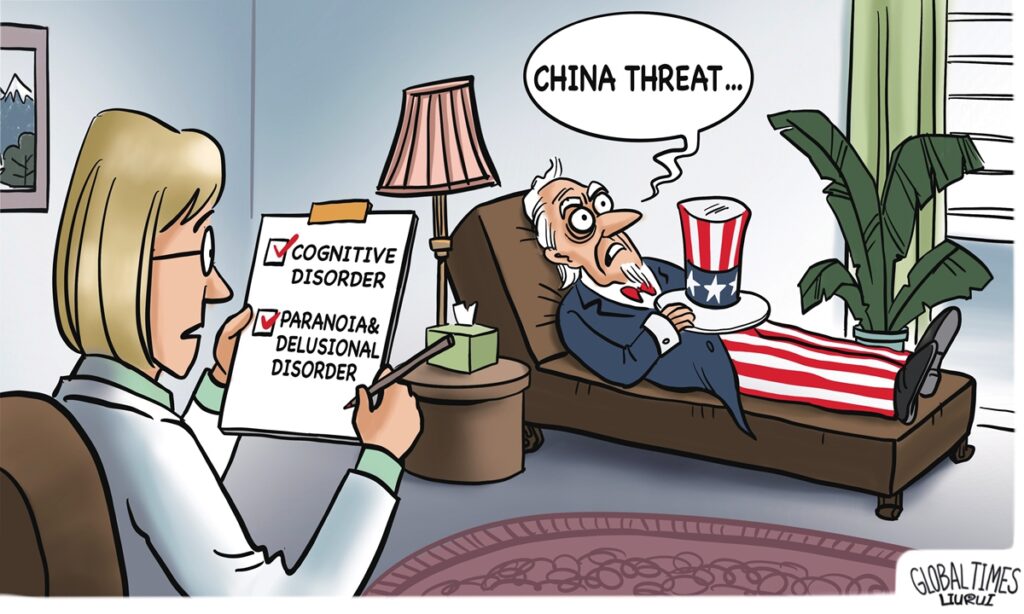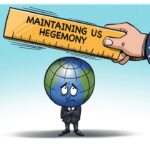The world we live today is the world in which the West has been expanding for 500 years, but the Global South, represented by China, is on the rise.
However, the West’s expansion and Global South’s emergence are not going to integrate in a silky-smooth transition, especially for the West – it is entering this change with a deep affection and attachment to its 500 years of expansion.
On Tuesday, German Foreign Minister Annalena Baerbock expressed her feelings in a virtual speech to the Lowy Institute, an Australia think tank: “Increasingly, China is a rival – when it comes to the very fundamentals of how we live together in this world.
“China has changed, and that’s why our policy toward China also needs to change,” she added.
If we look at the changes in US and Western policy toward China based on the so-called change of China, described by Baerbock, what we see is a China that is seemingly like the West of 500 years ago – full of drive for global exploration, expansion, and colonization, and unafraid to use military power as a precursor to unifying the wealth and faith of the world under the banner of Western civilization
However, China’s “change” in Baerbock’s description is filled with the Western imagination.
Over the past four decades of its reform and opening-up, China has followed a path of peaceful development. At the core of China’s change is the modernization of a home to one-fifth of the world’s population, fundamentally altering global development and our way of living together.
China’s change is not a result of failing to respond to the abrupt changes in the tide of globalization. On the contrary, Chinese enterprises that have been or are on the verge of leading the world are all advancing in the market economy.
The West looks at China’s change with fear, because they are not willing to fully give China the world status it deserves, including China’s position in the global manufacturing and the global market.
One example is the West’s treatment of electric vehicles produced in China.
In a recent interview with the Telegraph, a senior British government official said, “If it is manufactured in a country like China, how certain can you be that it won’t be a vehicle for collecting intel and data?”
Jim Saker, president of the Institute of the Motor Industry, put it more sinisterly and told The Times that “the threat of connected electric vehicles flooding the country could be the most effective Trojan horse that the Chinese establishment has.”
The backdrop to this concern is that China has become the world’s largest producer of electric cars, with surging exports knocking on the doors of the US and Europe.
All products related to the internet and AI technology undoubtedly face information security concerns. But highlighting the ideological attributes of this issue, rather than addressing it realistically through legal provisions that are consistent with a market economy, is clearly contrary to the order emphasized by the West, and underscores the fact that this so-called order, which is used to bash China, is in fact self-serving, narrow-minded and conservative.
In the final analysis, it is evident the West can’t accept the challenge posed by China’s change, and still recognizes in its bones that China can only be inferior to the West as a follower, rather than a leader.
China is changing, the Global South is changing, and such changes are bound to touch Western interests. If the West pushes China to the hostile side because of their inability to accept such changes, in the end, China will not be the only one facing difficulties and challenges.
Whether the West is willing to share the order they have built over the past 500 years is directly related to the advancement or retreat of human development.
(Global Times)



